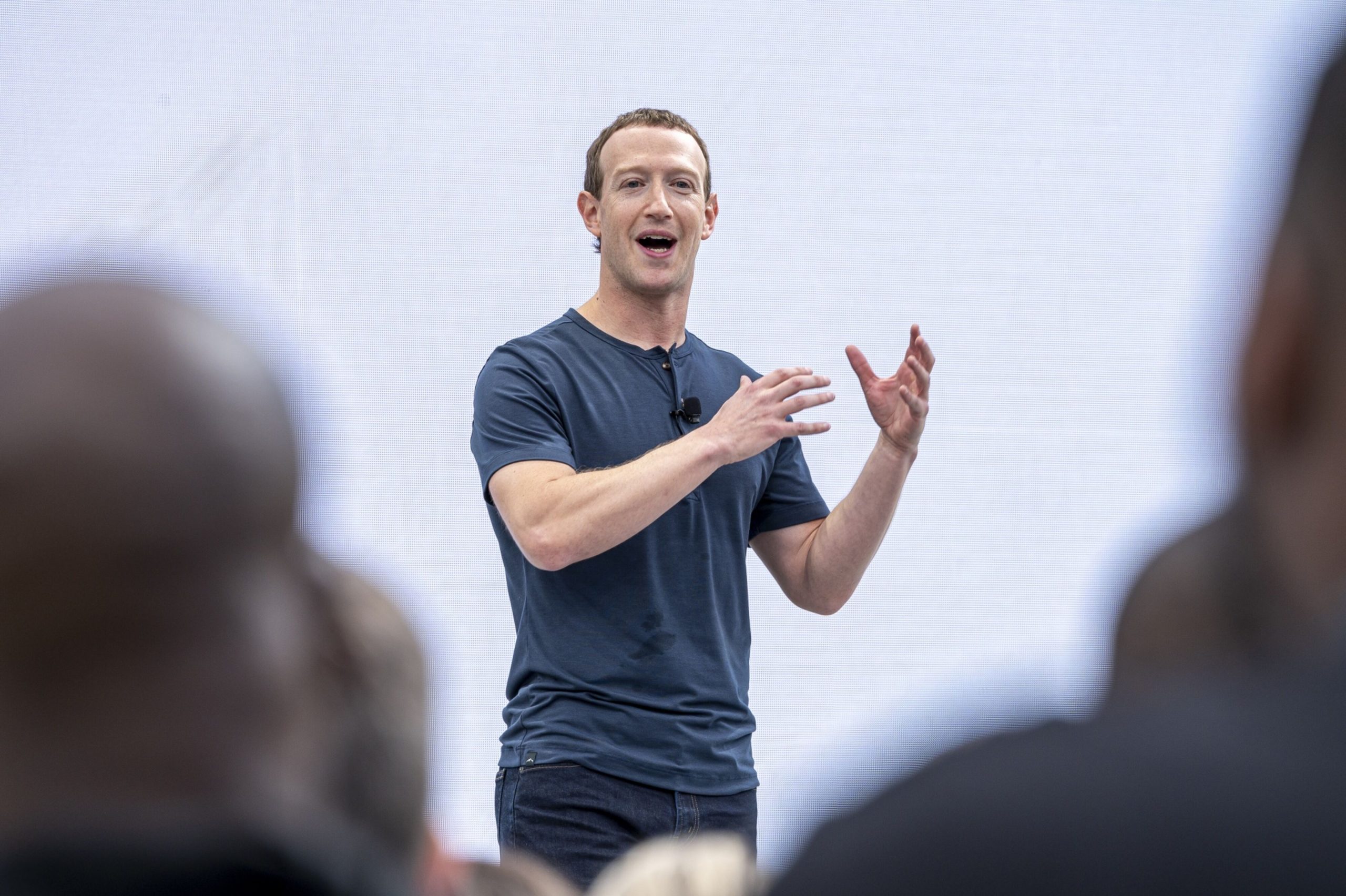Artificial Intelligence
Facebook parent launches AI model to rival OpenAI, Google
Meta Platforms debuted a new and powerful AI model that chief executive officer Mark Zuckerberg called “state of the art” and said will rival similar offerings from competitors like OpenAI and Alphabet Google.

Meta Platforms, the parent company of Facebook, has introduced a new advanced AI model named Llama 3.1, highlighted by CEO Mark Zuckerberg as a cutting-edge development set to compete with offerings from rivals such as OpenAI and Alphabet Google. This latest model, unveiled on Tuesday, required extensive training over several months and substantial financial investment in computing power, constituting a significant upgrade from its predecessor, Llama 3, which was launched in April.
In an interview on the Bloomberg Originals series, ‘The Circuit with Emily Chang,’ Zuckerberg emphasized the importance of intelligence in an AI assistant, stating, “The Llama models that we’re building are some of the most advanced in the world.” He also revealed that Meta is already in the process of working on Llama 4.
Meta executives have outlined that the primary application of this model is to power chatbots within Meta’s ecosystem and for external developers. Llama 3.1 introduces a range of new capabilities, including enhanced reasoning capabilities for solving complex mathematical problems and instant text synthesis. Additionally, it incorporates generative AI features that can produce images based on text prompts, with a feature called “Imagine Yourself” allowing users to upload an image for customized depictions in various scenarios.
Meta utilizes the Llama models to drive its AI chatbot, Meta AI, within its apps like Instagram and WhatsApp, as well as for a standalone web product. Zuckerberg disclosed that Meta’s chatbot already boasts “hundreds of millions” of users and anticipates it becoming the most widely used globally by the year’s end. He also foresees external organizations leveraging Llama for training their own AI models.
Despite the steep investments made by Meta in AI technology, Zuckerberg acknowledged the significant financial commitment involved in training the Llama 3 models and the expected escalation in costs for future iterations. He mentioned that Meta embraced efficiency measures in 2023 but remains dedicated to investing in the AI competition.
While Meta has made the technology behind Llama publicly accessible, adhering to the company’s usage policies, the specifics of the data sets used to train Llama 3.1 remain confidential. The company harnesses publicly available user content from platforms like Facebook and Instagram, alongside proprietary data sets licensed from external sources, for training purposes.
Meta’s dedication to open-access AI strategy aims to drive innovation and influence the industry’s trajectory positively, according to Zuckerberg. He emphasized the importance of maintaining technological leadership and the advantages of collaborative innovation. The company’s commitment to AI development is evident in its substantial investments for the future, including scaling up GPU resources for training large models like Llama.
As Meta continues to navigate the evolving landscape of AI development, challenges and concerns arise, including debates around data privacy, potential misuse, and geopolitical implications of technology sharing. Zuckerberg stressed the importance of maintaining an open and decentralized approach to innovation, fostering competitiveness and technological advancement while acknowledging the global complexities of the AI race.















